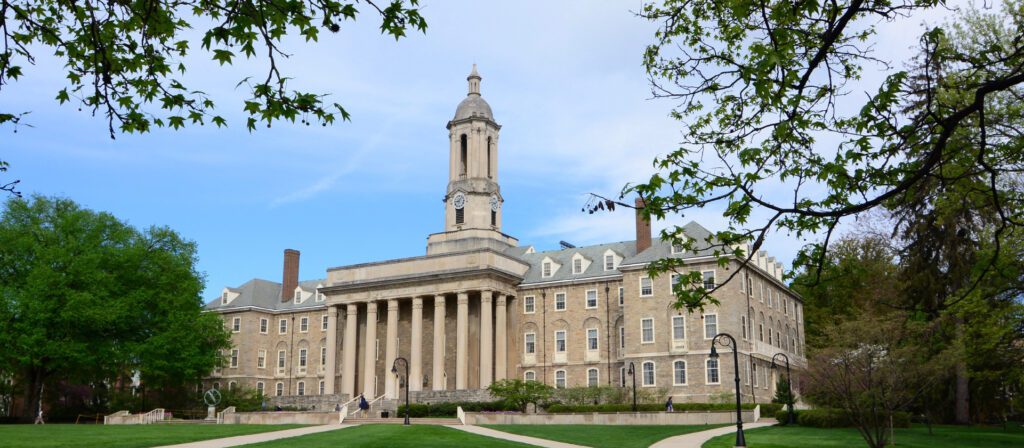The World Bank predicts global growth will stay around 2.7% from 2025 to 2026. At first glance, this news sounds stable. But look a little closer, and you’ll see a world economy that’s adjusting to big changes. US tariffs are the highest they’ve been in 100 years, and many other countries are raising theirs too. All this uncertainty is making it harder for businesses and governments to plan ahead and that’s likely to drag global growth even more.
But there is one good outcome from this: economists are more in demand than ever. The US Bureau of Labour Statistics projects a 5% rise in economist employment from 2023 to 2033, with around 1,000 job openings expected annually.
Penn State University’s Department of Economics is here to help you seize that opportunity. Penn State is ranked among the top 5% of global universities, with its economics department placed at #27. With world-class research and a mission rooted in academic excellence, the department prepares future economists for careers in academia, government, and the private sector.

Students in the MA programme learn from full-time professors and get one-on-one support when working on their MA paper. Source: Penn State University
Economics that opens doors
Located at University Park, the largest campus in the Penn State system, the Department of Economics offers the two-year MA programme, an excellent choice for anyone pursuing an advanced career in this field, preparing for a PhD, or strengthening their academic credentials before entering the job market.
Here’s the best part: qualified MA students can transition into the department’s PhD programme. It is known for producing leading researchers in economic theory, econometrics, international economics, and macroeconomics. Many alumni have gone on to secure faculty positions at the University of Chicago, Harvard University, Johns Hopkins University, MIT, Northwestern University, and many more.
No matter which path you pick, you’ll learn from the same expert professors who provide comprehensive training in economic theory and quantitative methods. Plus, both degrees are STEM-designated, which means, if you are an international student, you can stay longer in the US after graduating to gain hands-on, real-world experience.

From student groups to sports and campus events, Penn State University is a great place to learn and enjoy life. Source: Penn State University
Where theory meets impact
you’ll find students conducting research in state-of-the-art facilities. They explore five key areas of economic inquiry: Applied Microeconomics, International Trade and Development, Econometrics, Macroeconomics, and Theory. Each area is led by expert faculty whose diverse research interests open doors to a range of learning opportunities.
Faculty members such as Assistant Professor Kai-Jie Wu, who focuses on macroeconomics, economic growth, and labour economics, helps students understand economies in transition. Likewise, Assistant Professor Maria-Jose Carreras explores international economics, international trade, and macroeconomics.
Another factor that makes Penn State University stand out? How it connects knowledge to experience. One week you’re in class debating economic theory, and the next you’re interning at a major firm or navigating a study abroad experience. These experiences boost your resume and serve as stepping stones toward discovering your passions, building confidence, and becoming a well-rounded professional.
And you won’t do it alone. The Department of Economics, through the College of the Liberal Arts, ensures that every student has the support they need to thrive. Resources like the Liberal Arts Career Enrichment Network offer financial support so everyone can unlock transformative experiences. That’s how hundreds land internships with Fortune 500 companies, federal agencies, and nonprofits each year.
Follow the Department of Economics on X or follow the College of the Liberal Arts on Facebook, Instagram, LinkedIn, X, and YouTube.

